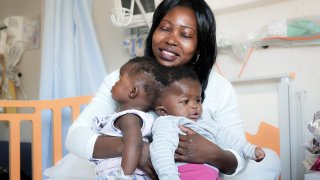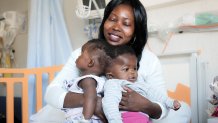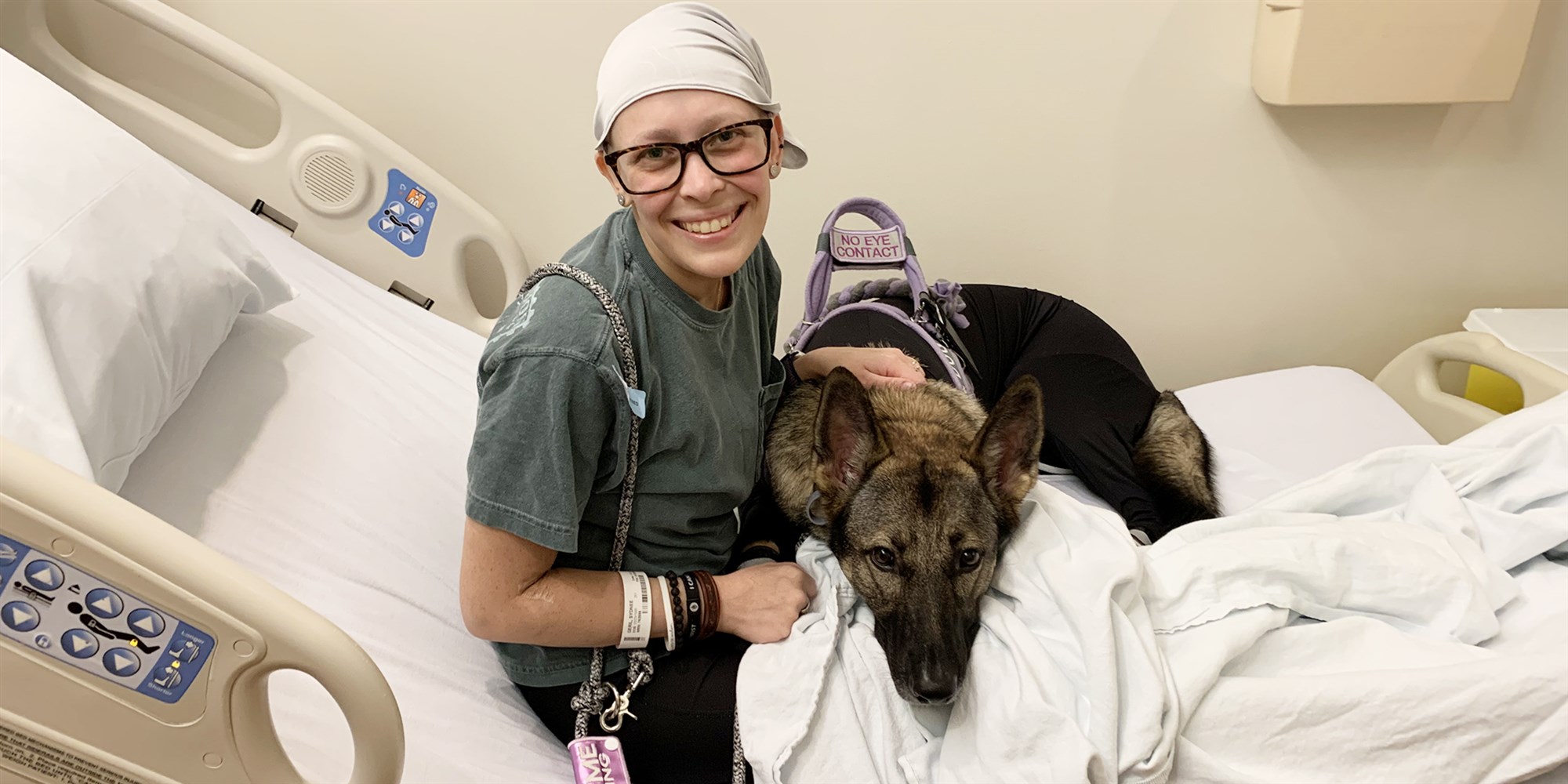
When Ervina and Prefina were born two years ago, they were conjoined at the skull, back-to-back. For most of their lives, they never saw the other’s face except when they looked at their reflections in a mirror. In early June, the twins finally had the chance to gaze directly at each other after 30 doctors and nurses separated them during an 18-hour surgery.
"We were very, very happy," Dr. Carlo Efisio Marras, head of neurosurgery at Bambino Gesu Children’s Hospital, told TODAY. "Their mother ran to me and she started to dance. She took my hands and she started jumping, so after that we jumped together. It was a very very magical, fantastic moment."
The twins' mother, Ermine, felt overwhelmed by the attention and declined a request for an interview, the hospital told TODAY.

Watch TODAY All Day! Get the best news, information and inspiration from TODAY, all day long.
In July 2018, the family came to the hospital’s attention when its president Mariella Enoc visited the Central African Republic and saw the twins. She told Ermine that her Vatican hospital could help. In September 2018, the family arrived in Rome and the twins underwent the first part of the separation in May 2019. The second part took place in June 2019.
"They had a very complex malformation," Efisio Marras explained. "The number of surgeries were three because the aim of the surgery was to create new circulation. If we did a separation in just one step the results could be very bad."
The team examined the girls’ skulls to make sure they could separate the two without harming them. When doctors determined they could do it, they pondered whether they should do it. They only wanted to separate Ervina and Prefina if they would have a better quality of life afterward.
"This means, what are the possibilities or the opportunities that we can give to these girls for their future?" Efisio Marras said.

Conjoined craniopagus twins have a "survival rate that is quite low" and about a "70, 75% mortality rate" in the first year of life, he added. The twins were a total posterior craniopagus — the back of their entire skulls were joined and they shared blood vessels. Yet, they did not share any brain tissue, making it safer for separation. Following surgery, doctors performed an MRI and it showed the separation didn’t damage their brains.
"It was remarkable that the brain was absolutely safe, healthy," Efisio Marras said. "The attitude of the two girls were quite fantastic because they were absolutely interactive."
As far as Efisio Marras knows this is the first surgery of this type performed in Italy or even the world. He attributes their success to a group of colleagues working from what other surgeons — such as Dr. James Goodrich, who separated craniopagus twins Jadon and Anias McDonald in 2016 — had done before them.
More From TODAY:
"The reason why we got the results is because the group (of doctors and nurses) was absolutely good," he said. "There are plenty of things in this process you have to take into account. We had to consider all the details."
But Efisio Marras and the team feel grateful that Ervina and Prefina have a new chance at life. They will monitor them for a year and expect them to develop normally.
"We were very happy because we had the opportunity to separate them with complete success," he said. "It was joy, pure joy."
This story first appeared on TODAY.com. More from TODAY:



